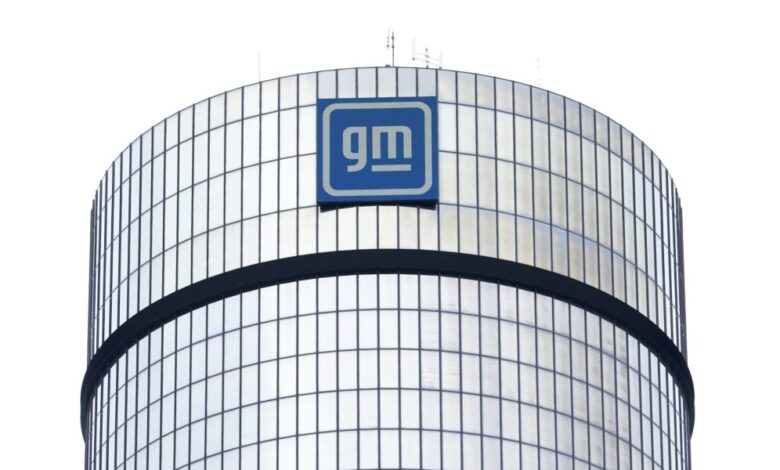GM to pay $146 million in fines for old cars


Automobile Corporation will pay nearly $146 million in fines to the federal government for failing to comply with emissions and fuel economy standards for 5.9 million of its older vehicles.
The National Highway Traffic Safety Administration said in a statement Wednesday that some GM Cars Model years 2012 through 2018 do not comply with federal law energy saving request.
The penalty comes after the Environmental Protection Agency said its testing showed GM pickup trucks and SUVs emitted 10 percent more carbon dioxide higher average than GM’s initial compliance test results.
The EPA said the vehicles will remain on the road and cannot be repaired. GM vehicles typically consume at least 10 percent more fuel than the numbers on the window sticker, but the company will not have to reduce the miles per gallon on the sticker, the EPA said.
“Our investigation achieved our accountability goals and sustained an important program to reduce air pollution and protect communities across the country,” said EPA Administrator Michael Regan.
GM said in a statement that it has complied with all regulations regarding vehicle emissions and mileage certification. The company said it does not admit any wrongdoing or failure to comply with the Clean Air Act.
GM spokesman Bill Grotz said the problem stems from a change in testing procedures the EPA implemented in 2016.
Grotz said owners do not need to take any action as the vehicle has no defects.
“We believe this voluntary action is the best solution to resolve outstanding issues with the federal government,” he said.
The EPA said the enforcement action covers about 4.6 million full-size pickup trucks and SUVs and about 1.3 million mid-size SUVs. Affected models include the Chevy Tahoe, Cadillac Escalade and Chevy Silverado. About 40 GM vehicle variants are covered.
GM will be forced to forfeit credits used to ensure that manufacturers’ greenhouse gas emissions stay below fleet emissions standards for that model year, the EPA said. In a quarterly filing with the Securities and Exchange Commission, GM said it expects the total cost of the settlement to be $490 million.
Because GM has agreed to address the excess emissions, the EPA said it does not need to make a formal determination about the reason for the excess pollution.
But David Cooke, senior vehicle analyst at the Union of Concerned Scientists, questioned why GM could not have known that pollution levels exceeded initial testing by more than 10%, given that the problem was so widespread across so many different vehicles. “You can’t just make a rounding error of more than 10%,” he said.
Dan Becker, director of the Climate Safe Transportation Campaign for the environmental group Center for Biological Diversity, said GM’s violations “show why automakers can’t be trusted to protect our air and our health, and why we need tough pollution regulations. Supreme Court, take note!”
In similar pollution cases in the past, automakers have been fined under the Clean Air Act for such violations, and the Justice Department has often gotten involved, Cooke said. Hyundai And Thatfor example, faced Justice Department action in a similar case.
The Justice Department declined to comment, and GM said the deal resolves all government claims.
Cooke said it’s possible GM owners will sue the company because their gas mileage is lower than advertised.
In 2014, Hyundai and Kia entered into an agreement in which they must pay a $100 million civil penalty to end a two-year investigation into overstating fuel economy on the window stickers of 1.2 million vehicles.
The joint Korean automakers have denied any violations of the law. Hyundai blamed the increased mileage on a misunderstanding of the EPA’s complex testing rules.
In 2015, Volkswagen admitted to deliberately cheating nearly half a million cars to pass US emissions tests.
The German company admitted that it deliberately installed software designed to “defeat” emissions testing, allowing cars to run more powerfully on the road while emitting up to 40 times the legal pollution limit. The scandal cost Volkswagen more than $30 billion in fines and settlements and sent two American executives to prison.




